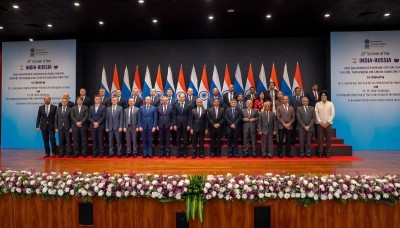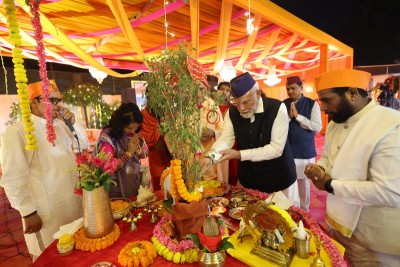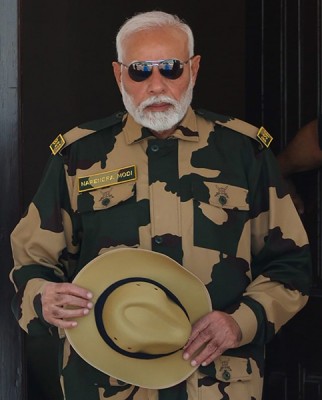
Justice in Terror
The Jamaat-ul-Ahrar (JuA), a splinter group of the Tehreek-e-Taliban Pakistan (TTP), claimed the targeted killing of Advocate Kasi and the subsequent suicide attack. JuA 'spokesman' Ehsanullah Ehsan vowed more attacks "until the imposition of an Islamic system in Pakistan". JuA had earlier claimed responsibility for the Charsadda Court Complex suicide attack of March 7, 2016, in which at least 16 persons were killed.
The Islamic State (IS) group also claimed responsibility for the suicide attack at the Quetta Civil Hospital. IS's Amaq news agency declared, "A martyr from the Islamic State detonated his explosive belt at a gathering of justice ministry employees and Pakistani policemen in... Quetta."
Four days after this drastic attack, 14 persons were injured in a roadside blast targeting a vehicle belonging to the Anti-Terrorism Force (ATF) accompanying Justice Zahoor Shahwani's vehicle on Zarghon Road, Quetta, on August 11, 2016. Justice Zahoor Shahwani is a judge of the Federal Shariat Court (a court which has the power to examine and determine whether the laws of the country comply with Shariah law). The bomb was planted along the side of the road and exploded as the ATF vehicle passed by. According to rescue officials, 10 civilians and four security officials were injured in the blast.
Lawyers in the Province have been under attack over the past months. Prominently, on August 3, 2016, a lawyer, Jahanzeb Alvi, was shot dead by unidentified assailants in the Brewery road area of Quetta. On June 8, 2016, Barrister Amanullah Achakzai, the principal of University Law College, Quetta, was shot dead by unidentified assailants in the Spiny Road area.
Lawyers in other parts of the country have also come under attack. Unidentified motorcycle borne assailants shot dead a lawyer Kundal Khan in the limits of the University Town Police Station in Peshawar, the provincial capital of Khyber Pakhtunkhwa (KP) on May 18, 2016. Earlier, in a targeted attack on May 5, two lawyers, Atif Zaidi and Ali Murtajiz, were killed on Grid Station Road of Dera Ismail Khan town. They were cousins, and belonged to the famous Zaidi family of Dera Ismail Khan, a prominent Shia clan that has been a key target of violent extremists for about a decade. The family has produced a number of notable bureaucrats, lawyers, judges, police officers, teachers and professors. But in various incidents of targeted killings, bombings and suicide attacks, the Zaidi family has lost about 30 of its members, while another 20 have been injured.
Indeed, irrespective of their sectarian background, it appears that lawyers are being singled out across Pakistan. According to partial data compiled by the South Asia Terrorism Portal (SATP), at least 114 lawyers have been killed, and another 210 have been injured, in 28 incidents of attack on lawyers since 2007. Significantly, the current year has so far recorded the highest number of attacks on lawyers over the last decade, with eight such resulting in 114 fatalities and more than 50 injured.
Lawyers in the country have been under persistent threat from extremist and sectarian groups. Abdul Maroof, the Special Public Prosecutor of Sindh, once regarded as one of the most effective prosecutors in Karachi, took refuge in the US in August 2014 after his house was attacked on November 21, 2013 and his brother was assassinated on April 12, 2014. Maroof was responsible for pursuing cases involving some of the most dangerous terrorist groups in the region, including TTP and Lashkar-e-Jhangvi (LeJ, a violent Sunni extremist group). Maroof disclosed that he received frequent death threats, and his requests for greater resources and security for himself and his staff were turned down by the Sindh Home Department: "Until mid-2013, my department did not have a vehicle and no security details, despite the fact we were handling a majority of the cases related to the TTP or Lashkar-e-Jhangvi."
Security fears for prosecutors and lawyers are a nationwide problem. "It's normal for the Lashkar-e-Jhangvi militants to tell us that they know which schools our children go to," said Abdus Samad Chaudhry, prosecutor general for Punjab, Pakistan's largest province. "The only security we have are umbrellas to protect us from the rain." On May 2, 2013, Chaudhry Zulfiqar Ali, a special federal prosecutor who worked on former Prime Minister Benazir Bhutto's assassination case, was gunned down in Islamabad, the nation's capital, on his way to work.
Christian lawyer and human rights activist Advocate Sardar Mushtaq Gill, who was the legal counsel in Shahzad and Shamma Masih lynching case, had gone into hiding on July 1, 2016, after being threatened of serious consequences. Moreover, there are serious concerns for the security of his family as well. His family escaped an abduction bid on May 22, 2016. Gill, who leads the Legal Evangelical Association Development (LEAD), has gone into hiding after surviving an assault by extremists. He was singled out for his legal support to Pakistan' persecuted Masih couple who were beaten and then burnt alive by a mob over fabricated blasphemy accusations.
While lawyers had been targeted from time to time, the security threat to the courts and judges has also loomed large. Some major incidents of terrorist attacks on courts and their functionaries in recent years include:
March 7, 2016: A teenage suicide bomber killed at least 17 people, including six women, two children and two Policemen, and injured another 23 at the Court Complex in the Shabqadar tehsil of Charsadda District in KP. The JuA faction of the TTP claimed the responsibility calling it revenge for the hanging of Mumtaz Qadri, the self-confessed killer of former Punjab Governor Salmaan Taseer. Taseer had advocated amendments to the blasphemy law.
November 11, 2014: One person was killed and 20 were injured in an explosion targeting a vehicle carrying ATC Judge Nazeer Ahmed Langove on Double Road in Quetta.
June 20, 2014: Environmental Tribunal Judge Sakhi Sultan was killed in a firing incident in the Jinnah Town area of Quetta.
March 3, 2014: At least 11 persons, including Additional District and Sessions Judge Rafaqat Awan, a woman lawyer, and a Policeman, were killed and another 25 were injured when terrorists attacked the courthouse complex in Islamabad. Asad Mansoor, the spokesman of Ahrar-ul-Hind (AuH), a TTP splinter group, claiming responsibility for the attack, declared that the judicial system in the country was 'un-Islamic' and that they would continue their 'struggle' till enforcement of Shariah law.
June 26, 2013: A bomb attack targeting a Sindh High Court judge killed at least 10 persons, including two Rangers personnel, six Policemen and the driver of the judge's car, and injured 15, including the judge, near Burns Road in Karachi, the provincial capital of Sindh. The intended target of the terrorists was senior Sindh High Court judge, Justice Maqbool Baqar. TTP 'spokesman' Ehsanullah Ehsan claimed responsibility of the attack, saying they detonated the bomb remotely, adding, "We attacked the judge in Karachi as he was taking decisions against Shariah and he was harmful for Mujahideen.'
August 30, 2012: Three people, including a Shia Sessions Judge, identified as Zulfiqar Naqvi, his guard and driver, were shot dead by unidentified terrorists in a sectarian attack on Munir Mengal Road in Quetta.
March 18, 2012: Two Policemen, identified as Abdul Malik and Naveed, were killed when unidentified assailants opened fire at the residence of Justice Jahangir Arshad, a newly-appointed judge of the Shariat Court, in the Mumtazabad area of Multan District.
July 17, 2007: at least 17 people were killed as a suicide bomber blew himself up outside the venue of the District Bar Council Convention in Islamabad, killing some PPP political workers waiting for the arrival of the then deposed Chief Justice Iftikhar Muhammad Chaudhary, who was due to address the lawyers' convention.
February 17, 2007: Seventeen people, including Senior Civil Judge Abdul Wahid Durrani, were killed and 30 were injured, in a powerful suicide bombing in the Quetta District Courts compound.
Indeed, the Courts have been so completely intimidated, compounding entrenched sectarian biases, that religious minorities have little chance of justice in Pakistan. Thus, in the high profile Aasia Noreen case, the trial judge, while delivering a guilty verdict, declared that any argument between a Muslim and non-Muslim "could not (be) other than the (sic) blasphemy."
In the wake of the attack on lawyers in Quetta on August 8, 2016, an emergency meeting was convened on August 10, on the directions of the Chief Justice of Islamabad High Court, Mohammad Anwar Khan Kasi. Justice Athar Minallah of the Islamabad High Court chaired a meeting of the Police and Administration to the review security of Islamabad's Courts including buildings of the High Court and the District Courts, and directed the Administration and Police to make walkthrough gates, CCTV cameras functional and ensure foolproof security in around the Court premises.
This is not first time that the judicial fraternity has been worried about the lack of proper security measures in and around Courts. After the Charsadda Court suicide attack on March 7, 2016, the Islamabad High Court Bar Association (IHCBA), on March 21, 2016, expressed concerns over the lack of proper security arrangements on the premises of the Court, especially the 'inoperative CCTV cameras.' In a letter to the Registrar, Islamabad High Court, and the Chief Commissioner, the Association stated that lawyers in the Federal Capital were concerned about their security. The letter stated that IHCBA had contacted relevant officials regarding the issue, but to no avail. It pointed out, further, that CCTV cameras installed in the High Court premises were inoperative, walk-through gates had not been placed properly, while security officials performed their duties inside the compound instead of outside the gate.
Year after year, with incidents after incidents, the Pakistani Government and security agencies have failed to rouse themselves to the situation of the collapse of security across the country. With each major incident, there is a great hue and cry regarding security lapses for a few days. Quickly, however, every Government agency responsible for security lapses again into a deep slumber.
Support Our Journalism
We cannot do without you.. your contribution supports unbiased journalism
IBNS is not driven by any ism- not wokeism, not racism, not skewed secularism, not hyper right-wing or left liberal ideals, nor by any hardline religious beliefs or hyper nationalism. We want to serve you good old objective news, as they are. We do not judge or preach. We let people decide for themselves. We only try to present factual and well-sourced news.







